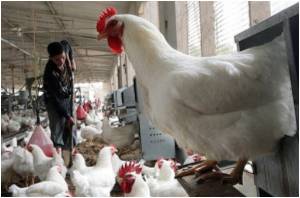US experts give nod to publish two papers on a mutant bird flu.

The US experts had previously opposed publishing the research -- which showed how an engineered H5N1 flu virus could pass easily in the air between ferrets -- over fears it could end up in the wrong hands and unleash a deadly flu pandemic.
"The data described in the revised manuscripts do not appear to provide information that would immediately enable misuse of the research in ways that would endanger public health or national security," said a statement from the NSABB.
After meeting to review the latest details on March 29-30, the experts saw "new evidence has emerged that underscores the fact that understanding specific mutations may improve international surveillance and public health and safety.
"Global cooperation, critical for pandemic influenza preparedness efforts, is predicated upon the free sharing of information and was a fundamental principle in evaluating these manuscripts," it added.
The NSABB faced criticism after it ruled unanimously in December that a pair of US-funded studies, one by a team from Wisconsin and the other led by Netherlands-based scientist Ron Fouchier, should not be printed without heavy edits of key details to prevent the work from being replicated.
Advertisement
At the latest NSABB meeting, experts agreed unanimously that the Wisconsin team's research should be published in full, as planned by the British journal Nature.
Advertisement
NSABB board member Michael Osterholm, director of the Center for Infectious Disease Research and Policy at the University of Minnesota School of Public Health, said last month he was concerned about potential havoc by amateurs.
"I am not personally worried about somebody in a cave somewhere," he said. "I worry about the garage scientist, about the do-your-own scientist, about the person who just wants to see if they can do it."
Meanwhile, Fouchier has insisted that the mutant virus is not as lethal as the public has been led to believe, and urged its publication so that scientists can prepare remedies should such a variant arise in nature.
The new NSABB recommendations will be forwarded to the US government for "review and consideration," the group said in its statement on Friday.
Bird flu is believed to kill more than half the people it infects, making it much more lethal than typical strains of the seasonal virus.
According to the World Health Organization, there have been 573 cases of H5N1 bird flu in humans in 15 countries since 2003, with 58.6 percent of those resulting in death.
Source-AFP







